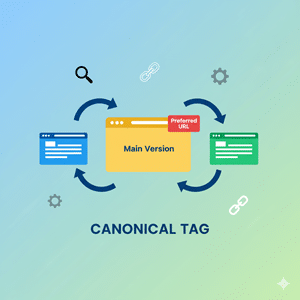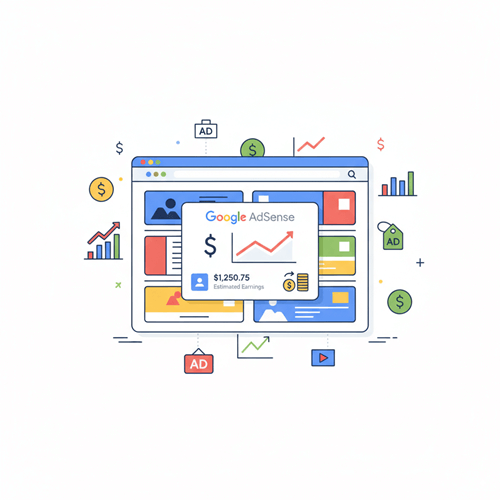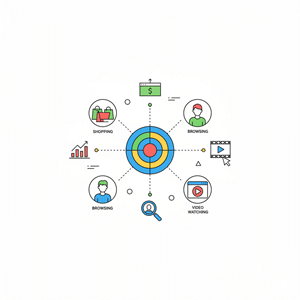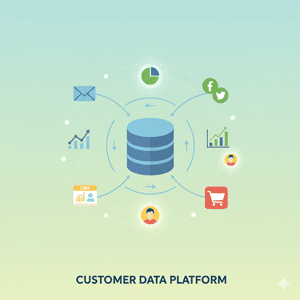What is a Canonical Tag?
A canonical tag () is an HTML element that informs search engines about the “master” or preferred version of a webpage when there are multiple pages with similar or duplicate content. This approach strengthens link equity and avoids SEO complications arising from duplicate URLs.

Why Canonical Tags Matter
Avoid Duplicate Content Penalties:
When there are several variations of identical content, search engines may impose penalties or overlook them altogether. Canonical tags address this issue by indicating the preferred URL.
Preserve Link Equity:
All backlinks and authority are directed to the canonical URL, guaranteeing steady SEO performance.
Improve Crawl Efficiency:
Assists search engines in optimizing their crawl budget by eliminating unnecessary pages.
Better Indexing Control:
Empowers webmasters with enhanced authority over content representation in search engines.
Essential for E-commerce & Dynamic URLs:
Particularly beneficial for platforms that utilize filters, pagination, or session IDs, which create various page versions.
How Canonical Tags Work
Imagine three URLs showing the same product:
- example.com/shoes?color=red
- example.com/shoes?ref=homepage
- example.com/shoes
If all three pages display the same product, you should implement a canonical tag in the section of each to indicate:
<link rel=”canonical” href=”https://example.com/shoes”>
Search engines will then treat https://example.com/shoes as the authoritative version.
How SEO Agency Boston Uses Canonical Tags Smartly
At SEO Agency Boston, we take the initiative to audit and implement canonical tags, enhancing site structure and boosting search visibility.
- E-commerce & Filters: We make sure that filtered versions do not undermine rankings by using canonical tags to point to the primary product or category page.
- Cross-Domain Content: We utilize cross-domain canonical tags to assert our ownership of syndicated content.
- CMS Integrations: We set up CMS platforms such as WordPress or Shopify to automatically insert the appropriate canonical tags.
- Technical Audits: In our SEO audits, we identify and resolve any missing, conflicting, or incorrect canonical tags.
- Custom URL Strategies: Incorporating UTM tracking, dynamic rendering, or pagination, we ensure that canonicalization is in sync with the site’s internal linking strategy.
Best Practices for Canonical Tags
- Use absolute URLs (e.g., https://example.com/page)
- Place the tag in the <head> section
- Only point to indexable, canonical-worthy pages
- Avoid self-referencing canonicals on noindex pages
- Ensure only one canonical tag per page
- Avoid depending on canonical tags to resolve significant content duplication problems
Related Terms
- Duplicate Content
- Indexing
- Meta Robots
- Technical SEO
- URL Parameters
Common FAQs About Canonical Tags
No. Canonical tags serve as indicators rather than directives. In contrast to a 301 redirect, these do not alter the user experience but rather affect how search engines perceive the page.
Yes. This is beneficial for content syndication when you aim for Google to recognize your original site as the primary source.
Search engines could overlook the page, resulting in potential ranking declines or indexing issues. That’s precisely why canonical audits are crucial.

Control What Google Sees — And Trusts
Avoid allowing duplicate content to weaken your rankings. SEO Agency Boston establishes clear, credible canonical frameworks to ensure your site stands out where it counts — in the eyes of Google.






